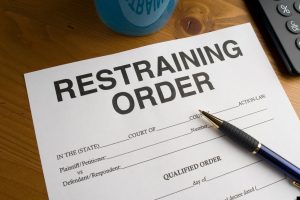A new Florida statute going into effect Oct. 1, 2024 will make it easier for law enforcement officers to verify whether you’re in violation of a Fort Lauderdale domestic violence restraining order. 
The new law allows recipients of Florida protection orders to carry a single, wallet-sized card, called “Hope Cards,” to prove the valid status of an active restraining order.
As our Broward criminal defense lawyers can explain, those who secure a domestic violence protection order in Florida are generally expected to carry a physical copy of that order around at all times in order to quickly demonstrate to law enforcement that validity of the order. Otherwise, the police have to spend some time combing through the system to find and verify it. The problem with this, according to many victims’ advocates, is that those orders can easily be 9-10 pages long. They aren’t convenient to tuck into a purse or pocket.
Having an electronic copy is better than nothing, but they don’t have the benefit of a seal of the clerk of the court. Police can’t make an arrest for violating an order until they first verify that the order exists and is current.
Enter the Hope Cards.
What Hope Cards Will Mean in Florida Protection Order Violation Cases
They’re wallet-sized cards that are issued by the Clerk of Courts. More durable and convenient than keeping the whole order on hand.
Florida isn’t the first state to do this. Montana was the first. Half a dozen others followed. The cards cost about $40 each, but the state has received $705,000+ in funding to get it started. Grants and private donations may cover the rest.
As far as what this means for defendants accused of violating a domestic violence restraining order in Fort Lauderdale: Probably not much. Having that card on hand could result in faster turnaround on arrests. It could maybe result in more arrests and convictions if that faster turnaround means officers are able to follow up sooner and, in doing so, preserve certain evidence of relevance that they may not have otherwise. But that’s a lot of “ifs.”
Penalties for Violation of Fort Lauderdale Restraining Order
If you’re arrested for violation of a restraining order in Fort Lauderdale, the precise outcome will depend on the specific facts of the case.
The terms of protection orders vary from case-to-case, so a violation can be grounds for arrest, even if the underlying action itself wasn’t criminal. For example, you may be ordered not to go within 60 feet of the alleged victim. That’s not a statutory offense, but it’s still unlawful per the terms of the protection order. However, if you not only come within 60 feet but also batter the person, now you’re likely facing at least two charges – one of those possibly a felony.
But let’s say you’re solely accused of willful violation of a restraining order. (Prosecutors do have to prove it was a willful violation, not just an accident.) Penalties are spelled out in F.S. 741.21.
Typically, these are first-degree misdemeanors, the most serious level of misdemeanor. That carries up to one year in jail. If someone was injured as a result of your violation, you can be compelled to financially compensate them for medical bills, lost wages, attorney’s fees and more.
If you have two or more previous convictions for violating domestic violence injunctions, the third is a third-degree felony, which carries a maximum penalty of five years in prison.
Call Fort Lauderdale Criminal Defense Attorney Richard Ansara at (954) 761-4011. Serving Broward, Miami-Dade and Palm Beach counties.
Additional Resources:
Bill to provide ‘Hope Cards’ to victims of domestic violence moves in the Senate, Feb. 12, 2024, By Jim Ash, Florida Bar
More Blog Entries:
Fort Lauderdale Domestic Violence Attorney Details Most Effective Defenses, July 9, 2024, Fort Lauderdale Criminal Defense Lawyer Blog
 Fort Lauderdale Criminal Attorney Blog
Fort Lauderdale Criminal Attorney Blog


